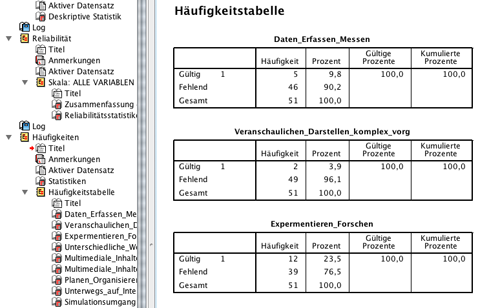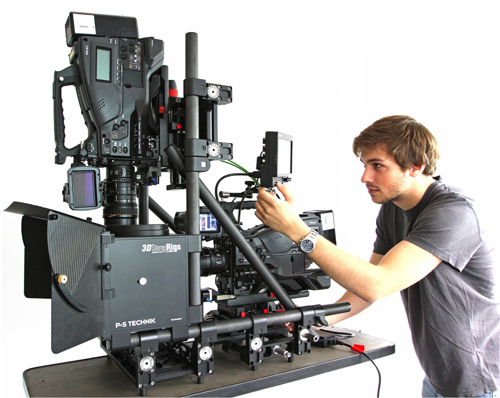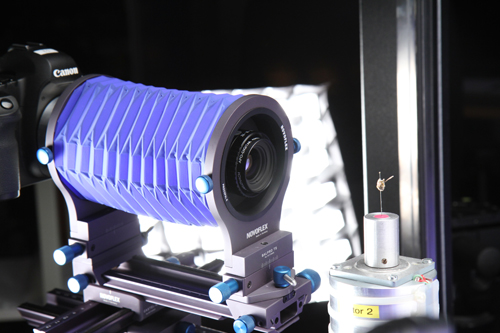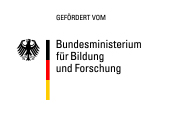Throughout the project period we will develop demonstrators that show whether and under what conditions the different
sub-modules of the Technology Enhanced Textbook and the related production and distribution methods are didactically and economically profitable.
Also we would like to find out whether these methods have sufficient innovation potential to compete on the market. We are
thinking about making our solutions broadly available by basing them on HTML5/Javascript and licensing them under a Creative
Commons license. Our goals include high-quality productions produced as apps or as specific installations for museums, broadcasters or publishers. The production of the demonstrators is carried out in several
iterative steps and is done in close cooperation with other parties from various sectors (schools, universities, television,
radio, museums) in order to obtain meaningful results in terms of a future application.
We have initiated productions with the following validation partners:

Fig.: Delphi-survey on the textbook of the future, excerpt from the preliminary study
Museum für Naturkunde Berlin
The "Museum für Naturkunde" in Berlin has an extensive zoological collection. It is of great interest to give access of
individual specimen (beetles, bees, mosquitoes, etc.) of the thousands of species of the comprehensive collection, to
researchers in other institutions and countries for scientific purposes. For this we develop an efficient method for producing
digital high quality (HD) photographs of selected specimen. The digital objects can then be rotated and zoomed as macro-views.
In this context we also experiment with large-scale productions in S3D (stereo photography). Another interest is to use those
photographs to give broad access to visitors of museums, so that they can observe objects they are interested in both on site
at the museum and later on at home. We want to give the option to transfer these objects to one's individual
"Technology Enhanced Textbook" and thus have them available any time.
Spectrum Science Center
The Spectrum is a branch of the Technik-Museum Berlin, which offers a large variety of opportunities to vividly experience
scientific research. Together with the Spectrum we develop various enhanced interaction and representation forms for Interactive
Screen Experiments (ISE) and Interactive Screen Laboratories (ISL) and the corresponding production
methods. We are thinking of multimedia extensions for real experiments as well as using experiments that are otherwise
inaccessible, as multimedia interactive installations. We also want to connect the various museums of Berlin (e.g. Zeiss
Planetarium, Archenhold observatory, technology museum, etc.).

Fig.: Building of the museum: Spectrum Science
Center, photograph: Deutsches Technikmuseum Berlin
De Gruyter
The "Bergmann-Schaefer," published by De Gruyter, is a widely used textbook in university level physics courses that will
prospectively be expanded by challenging multimedia and interactive elements. Together with De Gruyter publishing we develop
exemplary solutions in the field of mechanics which connect the actual textbook to online modules and to the portfolio function
of the "Technology Enhanced Textbook".
Bayerischer Rundfunk alpha
The editors of Grips, which is a show of Bayrischer Rundfunk alpha, are thinking about expanding their online learning portal
with scientific subjects. Currently their content comprises the subjects German, English and Mathematics for secondary school
students. We are presently considering a pilot application for the subject physics in which TV formats are extended through specific applications
on mobile devices. At the same time we set out to produce the resulting multimedia modules in a way that would allow them to
be used in various contexts. For example the modules could also be included in the Bayrischer Rundfunk Tele-Kolleg providing
content to students that are about to attain an entrance qualification for the German Fachhochschule.
Visual Bridges
The television production company "VisualBridges" mainly produces real-world educational programs for example for ARD or
Cornelsen. In an exemplary feature of the ARD program "Kopfball" we will demonstrate ways for the audience to perform virtual
experiments of topics that were covered by the TV show. Viewers can experiment online while the TV show is being broadcasted
or afterwards.

Fig.: The S3D-camera rig for stereoscopic movie recording in physics experiments
Wikimedia Deutschland
Wikimedia supports the development and distribution of free knowledge resources. Its biggest project is Wikipedia including
numerous associated projects, such as Wikibooks, Wikiversity or Wiktionary. Currently Wikimedia Deutschland is thinking
about developing an exemplary textbook on the basis of Wikipedia articles, for one federal state in Germany. We are discussing
with Wikimedia Deutschland, how this can be implemented with the help of the "Technology Enhanced Textbook".
Archiv der Zukunft Netzwerk
For validation purposes in the school domain, we consulted with experts for constructivist learning. These experts included
teachers and school reformers of the "Archiv der Zukunft" network (ADZ). The ADZ network consists of nationwide organized
teachers, education responsibles, psychologists and architects who actively discuss and implement new forms of schools.
This network originates from the progressive educational movement. Since the inhuman assaults on students in the
Odenwaldschule by the former head of school, the ADZ network has distanced itself from the German tradition of progressive
education. Some members of the ADF network are part of the group of experts that formulated their visions on a textbook of
the future in the context of our Delphi study.

Fig.: Automated media production: 360° view of a bumblebee
MNU
The German Association for the promotion of math and science education (MNU) regularly conducts conferences for teachers of
science. The MNU meetings have been established nationwide as a recognized expert forum. As part of our Delphi survey on the
textbook of the future, a part of the expert group of teachers was recruited from this network.
Cornelsen
Helping to develop marketable application perspectives, Cornelsen supports us as so-called "innovation mentor". In regularly
scheduled meetings we discuss the global strategy of our project with representatives of Cornelsens´ management board as well
as with editors.
Technology Enhanced Textbook (TET)






